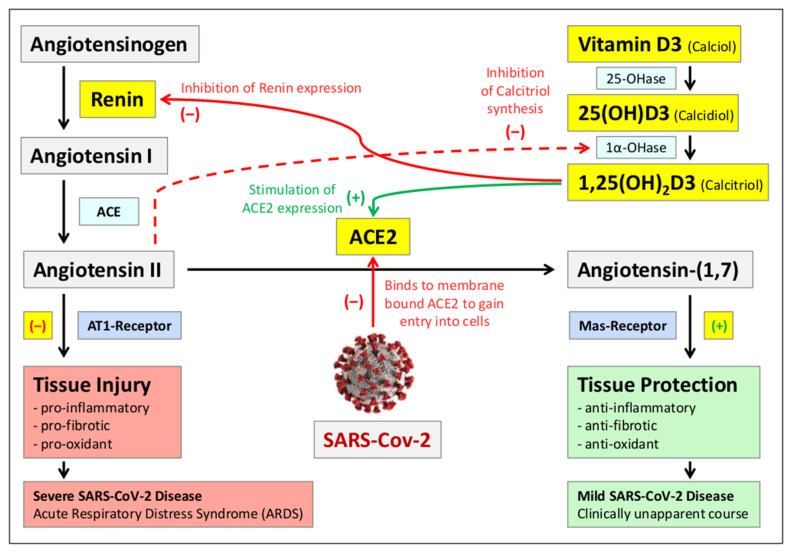Figure 2.
Interaction of vitamin D3 with the renin-angiotensin system (RAS): The renin-angiotensin system (RAS) is an important regulator of blood volume and systemic vascular resistance for the adjustment of blood pressure. The balance between angiotensin II and angiotensin-(1,7) is a critical factor for the proper functioning of the system [87]. Angiotensin-converting enzyme 2 (ACE2) is responsible for converting angiotensin II to angiotensin-(1,7). Angiotensin II primarily triggers vasoconstriction but can also cause inflammation, fibrosis, and oxidative stress in the absence of its counterpart, angiotensin-(1,7). ACE2 is the primary receptor of SARS-CoV-2, which decreases its activity, leading to an increase in angiotensin II levels and a decrease in angiotensin-(1,7) levels. This effect ultimately triggers SARS-CoV-2-induced “acute respiratory distress syndrome” (ARDS) [85,86]. Calcitriol, the active metabolite of vitamin D3, minimizes this effect by inhibiting renin expression and thus angiotensin II synthesis and by stimulating ACE2 expression [88,89], enhancing the conversion of angiotensin II to angiotensin-(1,7). Thus, insufficient vitamin D blood levels lead to the development of severe courses of SARS-CoV-2 disease. In addition, it has been shown that high angiotensin II levels lead to downregulation of the enzyme 1-alpha-hydroxylase [93], which is required for the formation of calcitriol, thereby exacerbating the negative consequences of vitamin D deficiency.

